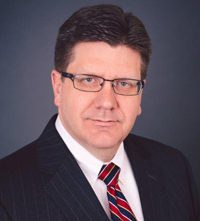While school’s out for summer, employers often hire teenagers to fill seasonal employment needs. Hiring minors comes at a price, since the law imposes numerous restrictions in their employment. As such, it is a good idea to identify and review some child labor laws applicable to employees under the age of 18.
Age Requirements & Hour Restrictions
The law restricts hours that employees under the age of 18 may work. The hours that minors can work depend on age, the type of work, and whether the minor is enrolled in school. New York State is one of the stricter states in the country when it comes to child labor laws. Below are some of the rules regarding employment of minors:
- Minors under age 14. Employers are prohibited from hiring minors under the age of 14.
- Minors aged 14 and 15. When school is not in session, minors aged 14 or 15 are allowed to work no more than 8 hours per day, 40 hours per week. From June 21 through Labor Day, minors aged 14 or 15 are allowed to work only between the hours of 7:00 a.m. and 9:00 p.m. (7:00 a.m. and 7:00 p.m. the remainder of the year). When school is in session, minors aged 14 or 15 are allowed to work no more than 3 hours per school day, 8 hours on non-school days, and no more than 28 hours per week.
- Minors aged 16 and 17. When school is not in session, minors aged 16 or 17 may work up to 48 hours per week, 8 hours a day, 6 days a week, and the permitted hours are from 6 a.m. to midnight. When school is in session, they may work no more than 28 hours per week, 4 hours per day on days preceding school days and 8 hours on Fridays, Saturdays, Sundays and holidays, 6 days per week. To work between 10 p.m. and midnight on a day before a school day, 16 and 17 year olds need written permission from a parent or guardian and a certificate of satisfactory academic standing from their school.
- All minors under age 18. Minors of any age may not work during school hours, unless they have graduated or are withdrawn from school. Home-schooled children may not work during the hours of the local public school.
There are some common exceptions to these age and hour restrictions, which include: Newspaper sales and delivery; babysitters; farm laborers; performers; and models.
Other Important Reminders
- Federal and state laws require that employers obtain age certificates from workers who are known to be under age 18 (or appear to be under age), commonly known as “working papers.”
- Employers must make a work schedule for all minors and post it where workers can see it. The schedule should show minors’ start and end hours, as well as time allotted for meals.
- Employers can change a minor’s hours of work, as long as all changes are posted on the schedule. Minors may work only on the days and at the times posted on the schedule. If minors are present at other times or if there is no posted schedule, it is a violation of child labor laws.
- Employers are required to return age certificates to their employees upon their termination so that minors are able to provide the same age certificate to future employers rather than filing a new application with the issuing agency.
- Civil penalties for violations of child labor laws are: maximum $1,000 for first violation, $2,000 for second violation, and maximum $3,000 for third and each subsequent violation. The following are some of the common jobs that are prohibited to be done by minors:
- Construction work, including wrecking, demolition, roofing, or excavating operations, and the painting or exterior cleaning of a building structure from an elevated surface.
- Any act involving the operation of power-driven woodworking, metal-forming, metal-punching, metal-shearing, bakery, and paper products machines.
- Any act involving the manufacture of brick, tile, and like products.
- As a helper on a motor vehicle.
- Any act in the care or operation of a freight or passenger elevator, except that minors over age 16 may operate automatic, push-button control elevators.

 Please join us on Wednesday, June 29 for a complimentary CLE on Secured Transactions presented by managing partner
Please join us on Wednesday, June 29 for a complimentary CLE on Secured Transactions presented by managing partner